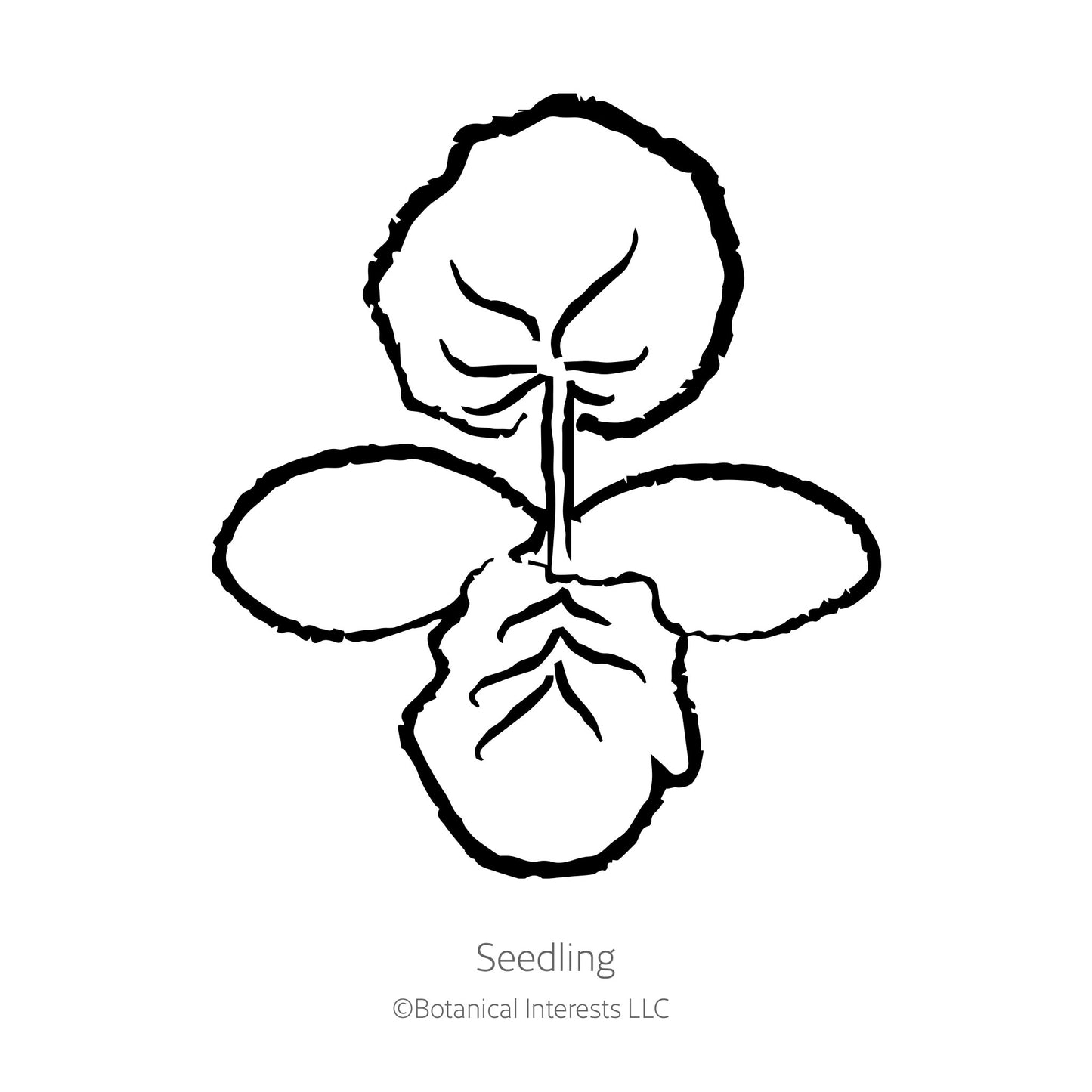


- Variety Info
- Sowing Info
- Growing Info
Variety Info
Days to Maturity: 100-105 days
Family: Cucurbitaceae
Native: United States and Northern Mexico
Hardiness: Frost-sensitive annual
Exposure: Full sun
Plant Dimensions: Restricted vine about 45"
Variety Info: An acorn type squash with stark white skin and nearly white flesh. Fruits are 1-1.5 lbs on highly productive plants, typically producing three to four fruits per plant. Vines are compact and most fruit are found on the crown set. The crown set is the first female flowers produced before vining starts. This means that "Mashed Potatoes" produces more female flowers earlier in its growth stage. Fruits will still appear on longer vines, just less of them. Color of the fruits hold into late fall.
Attributes: Frost Sensitive

Sowing Info
When to Sow Outside: RECOMMENDED. 1 to 2 weeks after your average last frost date, and when soil temperature is 70°-85°F.
When to Start Inside: Not recommended except in very short growing seasons, 2 to 4 weeks before transplanting. Roots are sensitive to disturbance; sow in biodegradable pots that can be planted directly into the ground. Transplant when soil temperature is at least 60°F.
Days to Emerge: 5- 10 days
Seed Depth: 1/2"-1"
Seed Spacing: 2-3 seeds per mound
Row Spacing: 3'-4'
Thinning: When 3 leaves, thin to 1 - 2 plants per mound
Your hardiness zone is
Growing Info
Harvesting: Harvest when the squash's rind is hard enough that you can't dent it with your fingernail and before first frost. Cut stem, (don't break it off) leaving 2" of stem attached, which keeps the squash whole, leaving no opening for infection. Though fruits are hard and may seem indestructible, treat them gently; bruising can spoil squash. Harvesting Blossoms: Look for pollen-producing flowers that have long stems and harvest just before use (fruit-producing flowers have a very small, developing squash at the base of the flower and shorter stems).
Special Care: To help protect plants against common pests like squash vine borer and cucumber beetles, use floating row covers, and remove covers when plants begin flowering. To further protect against vine borers, you can also cover the base of the stems near the ground with mulch, foil, or fabric material, as the base of the stem is where insect eggs are laid. Squash plants are susceptible to fungal disease, too, so make sure plants have ample space for air circulation. Sowing pollinator-attracting plants near squash can assist in proper pollination, resulting in a bigger harvest and well-shaped fruit.




